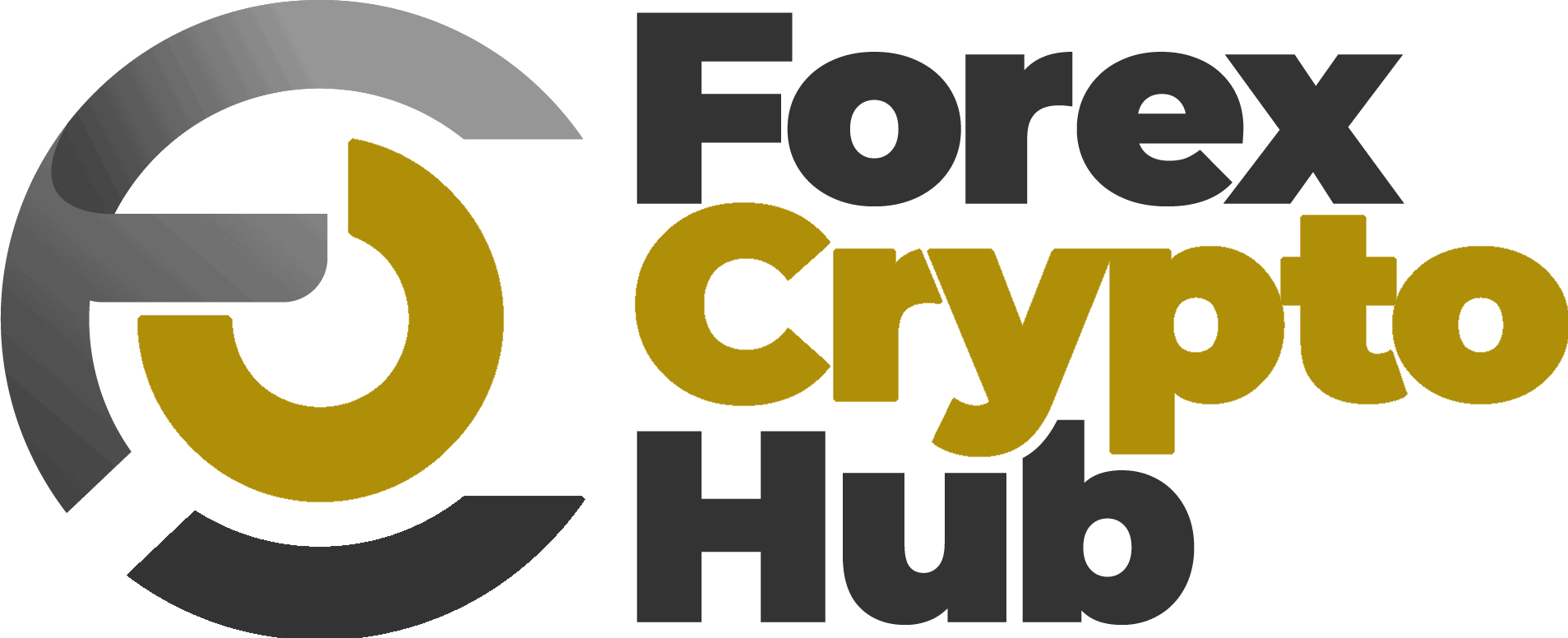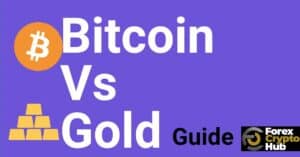Why Bitcoin is Digital Property: A Comprehensive Guide

In the digital age, the concept of property has evolved beyond physical assets. Bitcoin, the world’s first decentralized cryptocurrency, has emerged as a groundbreaking form of digital property. This revolutionary digital asset has sparked debates about its nature, value, and potential to reshape our understanding of ownership in the virtual realm.
This comprehensive guide delves into why Bitcoin is considered digital property. It explores the unique characteristics that set Bitcoin apart from traditional assets, examines its role in the digital real estate landscape, and compares it to conventional forms of property. By understanding Bitcoin’s position as digital property, readers will gain insights into its potential impact on the future of ownership and value exchange in our increasingly digital world.
The Concept of Digital Property
Defining digital property
In the digital age, the concept of property has evolved beyond physical assets to encompass virtual possessions. Digital property refers to any asset that is stored electronically and can be bought, sold, owned, transferred, or traded [1]. This broad definition includes a wide range of digital assets, from cryptocurrencies to virtual real estate.
The U.S. tax system recognizes digital assets as property, not currency [1]. This classification has significant implications for how these assets are treated legally and financially. According to the Infrastructure Investment and Jobs Act, a digital asset is defined as any digital representation of value recorded on a cryptographically secured, distributed ledger or similar technology [1].
How Bitcoin fits the definition
Bitcoin, as the world’s first decentralized cryptocurrency, exemplifies the concept of digital property. It meets the criteria of being stored electronically and having the ability to be bought, sold, owned, and transferred [1]. Bitcoin operates on a decentralized network called the blockchain, which ensures that no single entity controls its creation, distribution, or value [2].
One of the key characteristics that solidifies Bitcoin’s status as digital property is its decentralized nature. Unlike traditional securities or assets issued by central authorities, Bitcoin’s value and functionality are determined by the collective actions of its users [2]. This decentralization is a fundamental aspect that distinguishes Bitcoin from other forms of digital assets.
Bitcoin also fits the definition of a convertible virtual currency, which is a digital asset that has an equivalent value in real currency or acts as a substitute for real currency [1]. It can be:
- Used to pay for goods and services
- Digitally traded
- Exchanged for or converted into other currencies or digital assets
Comparison with traditional property
To better understand how Bitcoin compares to traditional forms of property, let’s examine some key differences:
Aspect | Traditional Property | Bitcoin as Digital Property |
|---|---|---|
Tangibility | Physical assets (e.g., real estate, vehicles) | Intangible, exists only in digital form |
Ownership Proof | Paper deeds, titles | Digital wallets, blockchain records |
Transferability | Often requires intermediaries | Direct peer-to-peer transfers |
Divisibility | Limited (e.g., can’t easily divide a house) | Highly divisible (up to 8 decimal places) |
Storage | Physical storage or safekeeping | Digital storage in wallets or exchanges |
Regulation | Well-established legal frameworks | Evolving regulatory landscape |
While traditional property and Bitcoin share some similarities in terms of ownership rights and value storage, there are significant differences in how they are managed, transferred, and regulated.
It’s worth noting that the concept of digital property extends beyond cryptocurrencies. In the realm of virtual worlds and online platforms, digital real estate has emerged as a new form of property. Within these digital environments, individuals can purchase and own virtual land parcels, much like physical properties [3]. These virtual properties present tangible opportunities to generate real income, despite existing solely in the digital realm [3].
Ownership in the digital real estate world mirrors traditional property ownership in many ways. Just as one can purchase vacant lots in the physical world, individuals can acquire land parcels within spatial and other virtual environments [3]. The key difference lies in how ownership is recorded and verified. Instead of traditional paper titles, ownership certificates for digital properties are stored in digital wallets, with transactions recorded via blockchain technology [3].
This blockchain-based system of ownership provides several advantages:
- Indisputable ownership: Blockchain technology ensures clear and verifiable ownership records.
- Exclusive rights: As the sole owner of a virtual land parcel, you have exclusive rights to access, modify, and monetize that specific plot.
- Transparency: All transactions are recorded on the blockchain, providing a transparent history of ownership.
As the digital landscape continues to evolve, the concept of digital property, including Bitcoin and virtual real estate, is likely to play an increasingly important role in our understanding of ownership and value in the 21st century.
Bitcoin’s Unique Properties as Digital Property
Scarcity and fixed supply
Bitcoin stands out as a unique form of digital property due to its absolute scarcity. Unlike traditional currencies or other digital assets, Bitcoin has a fixed supply cap of 21 million coins [4]. This limit is hardcoded into Bitcoin’s source code and enforced by all participants running the Bitcoin software, making it virtually impossible to change [4].
The scarcity of Bitcoin is further enhanced by the process of halving, which occurs approximately every four years. This process reduces the rate at which new bitcoins are created and released into circulation [5]. For instance, the most recent halving in 2020 decreased the block reward paid to miners from 12.5 bitcoins to 6.25 bitcoins, effectively slowing down the creation of new bitcoins [5].
Bitcoin’s scarcity has led some economists to consider it the best savings technology ever invented [4]. The fixed supply ensures that Bitcoin cannot be diluted by central banks, special interests, or counterfeiters, providing a level of security and predictability not found in traditional currencies [4].
Portability and divisibility
Bitcoin excels in portability, allowing for easy transactions across borders. Users can store Bitcoin on personal devices or flash drives and send or receive it digitally almost instantaneously without excessive fees or unnecessary intermediaries [6]. This high level of portability enables Bitcoin users to participate in the global economy and access financial services from anywhere with an internet connection [7].
In terms of divisibility, Bitcoin surpasses most traditional currencies. A single bitcoin can be divided into 100 million smaller units known as satoshis [8]. This high level of divisibility allows for precise transactions and makes it possible for individuals to purchase small fractions of a Bitcoin [6]. The ability to divide Bitcoin into such small units ensures that even if the value of a single Bitcoin becomes extremely high, it can still be used for everyday transactions [4].
Durability and fungibility
Bitcoin’s digital nature contributes to its durability. As long as the blockchain is maintained on even a single computer, Bitcoin continues to exist [8]. Since its inception, the network has demonstrated remarkable uptime, with more than 3,200 days without an outage [8].
Fungibility is another crucial property of Bitcoin as digital property. In theory, all bitcoins should be interchangeable and carry the same value [9]. However, real-world factors can sometimes affect this fungibility. For instance, bitcoins associated with illicit activities might trade at a discount, while those with strong privacy features might command a premium [9].
To maintain Bitcoin’s fungibility and its utility as a global, decentralized money, several privacy projects are working to undermine the heuristics used by chain analysis companies to apply taint to specific coins [9].
Property | Description |
|---|---|
Scarcity | Fixed supply cap of 21 million coins |
Portability | Can be sent anywhere with internet access |
Divisibility | 1 Bitcoin = 100 million satoshis |
Durability | Exists as long as blockchain is maintained |
Fungibility | All bitcoins theoretically interchangeable |
These unique properties contribute to Bitcoin’s value proposition as digital property. Its scarcity mimics precious metals like gold, its portability and divisibility make it suitable for various transactions, and its durability and fungibility (with some caveats) position it as a potential global, decentralized form of money. As the digital landscape continues to evolve, these properties are likely to play a crucial role in shaping Bitcoin’s future as a form of digital property.
Bitcoin vs. Traditional Forms of Property
Comparison with real estate
Real estate has long been considered a solid investment option due to its relatively stable and predictable return on investment, as well as its tangible nature as a physical asset [10]. It offers several tax benefits, such as deductions for mortgage interest, property taxes, and depreciation, which can help offset the cost of owning a home [10].
Bitcoin, on the other hand, presents a unique form of digital property with distinct characteristics. Unlike real estate, Bitcoin is not tied to any physical asset and is subject to rapid fluctuations in value based on market sentiment and news events [10]. This volatility makes Bitcoin a more speculative investment compared to traditional real estate.
However, Bitcoin offers advantages in terms of global accessibility and transferability. It can be easily sent and received anywhere in the world, without the need for physical transportation or complex legal processes [11]. This feature makes Bitcoin particularly attractive for international transactions and micropayments [10].
Advantages over gold and other commodities
Bitcoin is often compared to gold, with some even referring to it as “digital gold” [12]. Both Bitcoin and gold share similarities in that they have a higher market value than their intrinsic value, derive their market value from scarcity of supply and high mining costs, and are not controlled by any government [12].
However, Bitcoin offers several advantages over gold and other commodities:
- Divisibility: Bitcoin is highly divisible, making it suitable for small transactions [11].
- Digital storage and transportation: Bitcoin can be easily stored and transported digitally, unlike physical commodities [11].
- Transparent and predictable supply: The supply of Bitcoin is transparent and predictable, unlike many physical commodities [11].
It’s worth noting that while gold is primarily valued for its function as a store of value, the instability of Bitcoin prices can make it challenging for it to perform this function effectively [12].
Global accessibility and transferability
One of Bitcoin’s key advantages is its global accessibility and transferability. This feature makes it a unique form of property that can be used for a wide range of financial transactions and applications [11]. Bitcoin’s decentralized nature means it is not controlled by any single entity such as a government or central bank, making it attractive to some investors as a hedge against inflation and other economic uncertainties [10].
Bitcoin’s global accessibility has implications for its role in the financial system:
- Hedging capabilities: Bitcoin has shown the capability to hedge against the currency market in the long term [12].
- Diversification tool: It can serve as a hedge, diversifier, or safe haven for various currencies and asset classes depending on market conditions [12].
- Portfolio management: Bitcoin can be classified as an asset that is between the U.S. dollar and gold, making it an effective tool for portfolio management [12].
However, it’s important to note that Bitcoin’s liquidity can be limited depending on the platform used. While top cryptocurrencies by market cap are generally very liquid assets due to higher trading volumes and more invested capital, less popular cryptocurrencies can be much less liquid [13].
To summarize the comparison between Bitcoin and traditional forms of property:
Aspect | Real Estate | Gold | Bitcoin |
|---|---|---|---|
Tangibility | Physical asset | Physical commodity | Digital asset |
Stability | Relatively stable | Stable store of value | Highly volatile |
Accessibility | Location-dependent | Requires physical storage | Globally accessible |
Transferability | Complex legal processes | Physical transportation needed | Easy digital transfer |
Divisibility | Limited | Limited | Highly divisible |
Regulation | Well-regulated | Regulated commodity | Evolving regulations |
While Bitcoin offers unique advantages in terms of global accessibility and transferability, it also comes with higher volatility and evolving regulatory landscapes. Investors should carefully consider their goals and risk tolerance when deciding between traditional forms of property and Bitcoin as an investment option.
Conclusion
Bitcoin’s emergence as a form of digital property has a significant impact on our understanding of ownership and value in the digital age. Its unique characteristics, including scarcity, portability, and global accessibility, set it apart from traditional forms of property like real estate and gold. These features make Bitcoin a compelling option for those looking to diversify their investment portfolio or participate in the global digital economy.
As the digital landscape continues to evolve, Bitcoin’s role as digital property is likely to become increasingly important. While it offers advantages in terms of transferability and divisibility, it also comes with challenges such as volatility and regulatory uncertainty. To consider Bitcoin as an investment option, individuals should carefully weigh its potential benefits against the risks and align it with their financial goals and risk tolerance.
FAQs
What qualifies Bitcoin as digital property?
Bitcoin is considered a form of digital property because it is a type of convertible virtual currency and cryptocurrency. It falls under the broader category of digital assets, which also includes stablecoins.
How does Bitcoin function as a digital asset?
Bitcoin operates as a digital asset through a decentralized network spread across numerous computers. This structure enables it to function independently of governmental and central authority control, defining its nature as a cryptocurrency.
Is cryptocurrency categorized as a digital asset?
Yes, cryptocurrencies, along with non-fungible tokens (NFTs), stablecoins, and security tokens, are all types of digital assets.
What are the main types of digital property?
Digital property can be divided into three main categories:
Personal digital property
Personal digital property with monetary value
Business digital property.
References
[1] – https://www.irs.gov/businesses/small-businesses-self-employed/digital-assets
[2] – https://www.linkedin.com/pulse/bitcoin-digital-property-security-hzbitcoinconsulting
[3] – https://stagemeta.world/blog/what-is-digital-real-estate-2023-why-it-matters/
[4] – https://coinbits.app/blog/why-is-bitcoin-scarce
[5] – https://www.theblock.co/learn/245717/how-is-bitcoin-scarce
[6] – https://river.com/learn/why-do-bitcoin-have-value/
[7] – https://www.investopedia.com/ask/answers/100314/why-do-bitcoins-have-value.asp
[8] – https://nydig.com/learn/why-is-bitcoin-valuable
[9] – https://river.com/learn/bitcoin-fungibility/
[10] – https://www.greenrivermortgage.com/articles/real-estate-vs-crypto-a-comparison-of-investment-options
[11] – https://bitcoinmagazine.com/markets/bitcoin-vs-real-estate-which-is-the-better-store-of-value-in-times-of-conflict-
[12] – https://www.ncbi.nlm.nih.gov/pmc/articles/PMC9689522/
[13] – https://www.investopedia.com/news/should-you-buy-gold-or-bitcoin/




